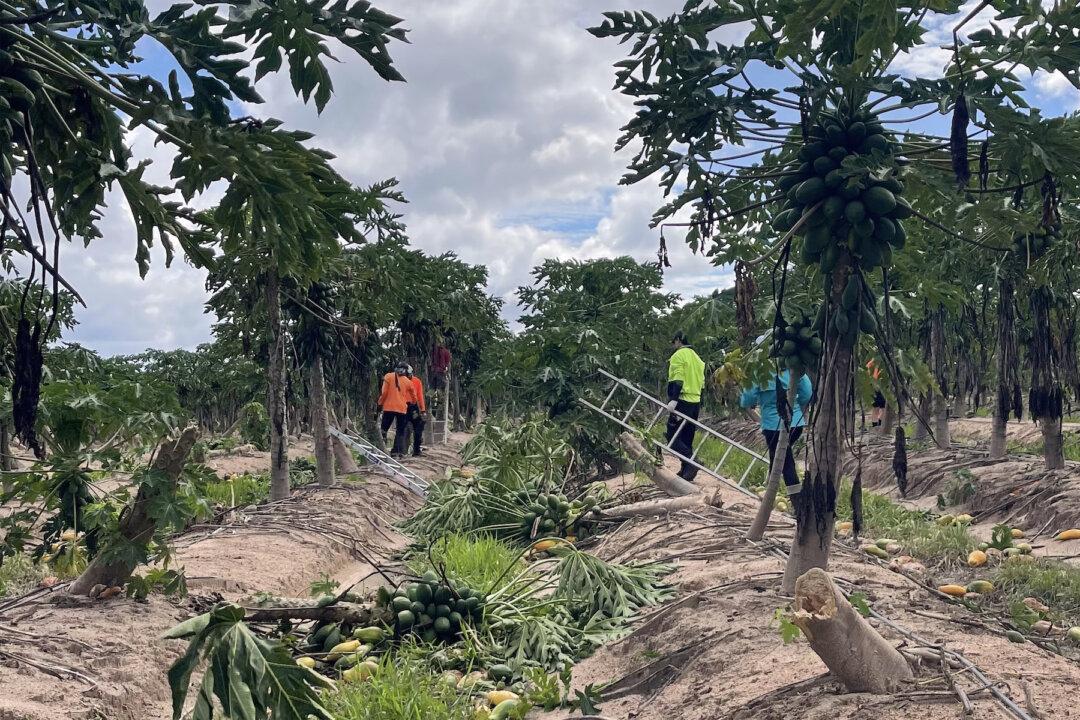Landslides triggered by Tropical Cyclone Jasper have affected the chemical composition of a flood-hit community’s water, creating a $150 million (US$97.55 million) problem.
‘Not the Same’: Cyclone Leaves Dirty Water, $150 Million Fix
‘The figure we have been given to get our water back up to a perfect solution is around the $150 million mark.’

A supplied image shows farm staff removing over ripe fruit from trees damaged in the wake of Cyclone Jasper at Skybury Farms near Mareeba in Far North Queensland, December 21, 2023. Farmers are reporting significant crop losses and a long recovery ahead across far northern Queensland after Cyclone Jasper. AAP Image/Supplied by Skybury Farms




